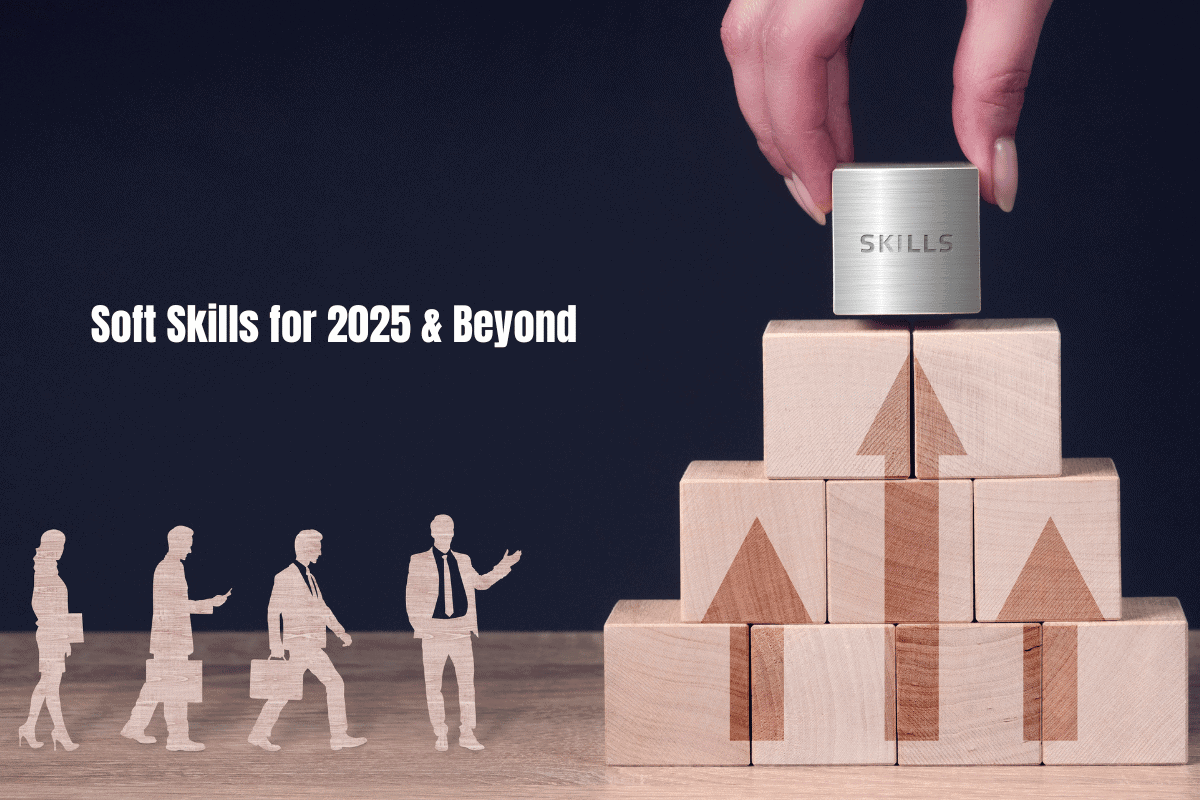Top 10 Soft Skills To Be Successful in 2025
With the year 2025 fast approaching, the career landscape is changing ever more quickly. It is now shifting, like a sand dune in the desert, under three powerful forces: the ceaseless march of technology (especially when it comes to artificial intelligence and automation), the diversification of the American workforce, and the legendary (and well-deserved) emphasis of liberal arts colleges on the importance of “soft skills.” From where I stand, here are the top ten “soft skills” that will help you define and achieve success in the future workplace.
1. Emotional Intelligence (EI)
Emotional intelligence—the capacity to identify, understand, and regulate our own emotions as well as those of other people—plays a critical role in today’s diverse workplace. People with high EI can steer their professional lives with the proverbial “soft skills” that are all too necessary for any workplace, especially one as collaborative as an online course. And inasmuch as EI really is all about “empathy and understanding,” it is hard to see how any experience could produce someone with an objectively higher level of EI than someone leading an online course, since that experience requires understanding and effectively managing the emotions of a very diverse group of people in real time over the course of several weeks.
2. Adaptation and Changeability
As industries change and new technologies come on the market, the ability to adapt is more crucial than ever. We’re all familiar with the expression “the only constant is change,” but for many of us, change creates a level of discomfort that we’re simply not used to. What if, instead of viewing change as an obstacle to overcome, we flipped the narrative and started seeing it as a pathway to new and exciting opportunities?
3. Efficient Communication
Being able to communicate clearly and effectively is a foundational stone for finding success in any profession. As our world becomes more interconnected, the ability to persuade and convey one’s thoughts, be it in writing or verbally, becomes even more crucial. The digital age also requires stringent and easy-to-read missives. Comprehension and following directives is vital in any workplace.
4. Solving Problems and Thinking Critically
Workplaces are more complex than ever, and the necessity for clear and critical thought as well as for good old-fashioned problem-solving skills is, if anything, on the upswing. Professionals who can perform these functions and who can also—and this is equally important—work with others who are doing them equally well are indispensable to any organization that wants to succeed.
5. Working Together and in Teams
The contemporary work setting largely depends on collaborative work to succeed. Professionals must interact proficiently within teams, considering the diverse viewpoints of their colleagues as well as their own and making the most of the different strengths team members bring to the table. The better professionals can do this, the more successful teams will be and the better the work environment will also be.
6. Cultural Competency
An interconnected world necessitates the practice of cultural competence. Cultural competence (the ability to understand and interact effectively with people from different cultures) is essential in today’s society. Thus far, we have been focusing on cultural awareness as an important part of this process. Being culturally aware means you recognize that there are many factors (race, ethnicity, culture, religion, and so forth) that can influence a person’s values and behavior.
7. Ingenuity and Innovation
Creativity is very much present in art, yet it is also a fundamental part of every job. It is what enables most workers to perform their essential tasks. Indeed, the “what” of most jobs is carried out using the tools and skills of creativity. Increasingly, the ability to do the “how” of a job creatively and with a hefty dose of innovation is what ensures that workers remain gainfully employed.
8. Managing Time and Organizing Tasks
When work gets busier, we have to work harder at good time management and organization for our tasks. We need to be able to prioritize, keep a handle on our to-do lists, and set deadlines that we can actually meet. Not doing these things can lead to a real sense of pressure, not to mention decreased productivity. Whether we like it or not, better time management and task organization can lead to a more satisfying work life.
9. Bouncing Back and Managing Stress in Today’s Work Environment
Being able to cope effectively with stress and to return quickly to the state that existed before stress was imposed is essential. In our work environment, where everything moves at breakneck speed, this is even more crucial. It is the foundation upon which our professional lives are built and allows us to move forward and upward in the work we do. Stress management and resilience training are relatively new concepts in the corporate world. They are fast becoming vital tools that help employees maintain their well-being and job satisfaction while ensuring a sustained level of performance throughout each workday.
10. Network and Build Relationships
Professional growth can often be the result of the relationships one nurtures over time. Networking and relationship-building, while sometimes gratingly referred to in a conversation as “synergy,” are essential skills. Being able to connect with someone in a meaningful way can set a person up for a big, fat career break.
Conclusion
Looking ahead to 2025 and beyond, it’s clear that soft skills will drive professional success. While being a technical expert is certainly helpful, standing out in the workforce increasingly demands adept navigation of interpersonal dynamics, an ability to adapt to and drive change, and—more than ever in our current climate—a talent for critical thinking. Elan’s Professional Development team works with you to develop these necessary (and often neglected) skills for the sake of your individual career, but also for the sake of the organizations that will employ you.








